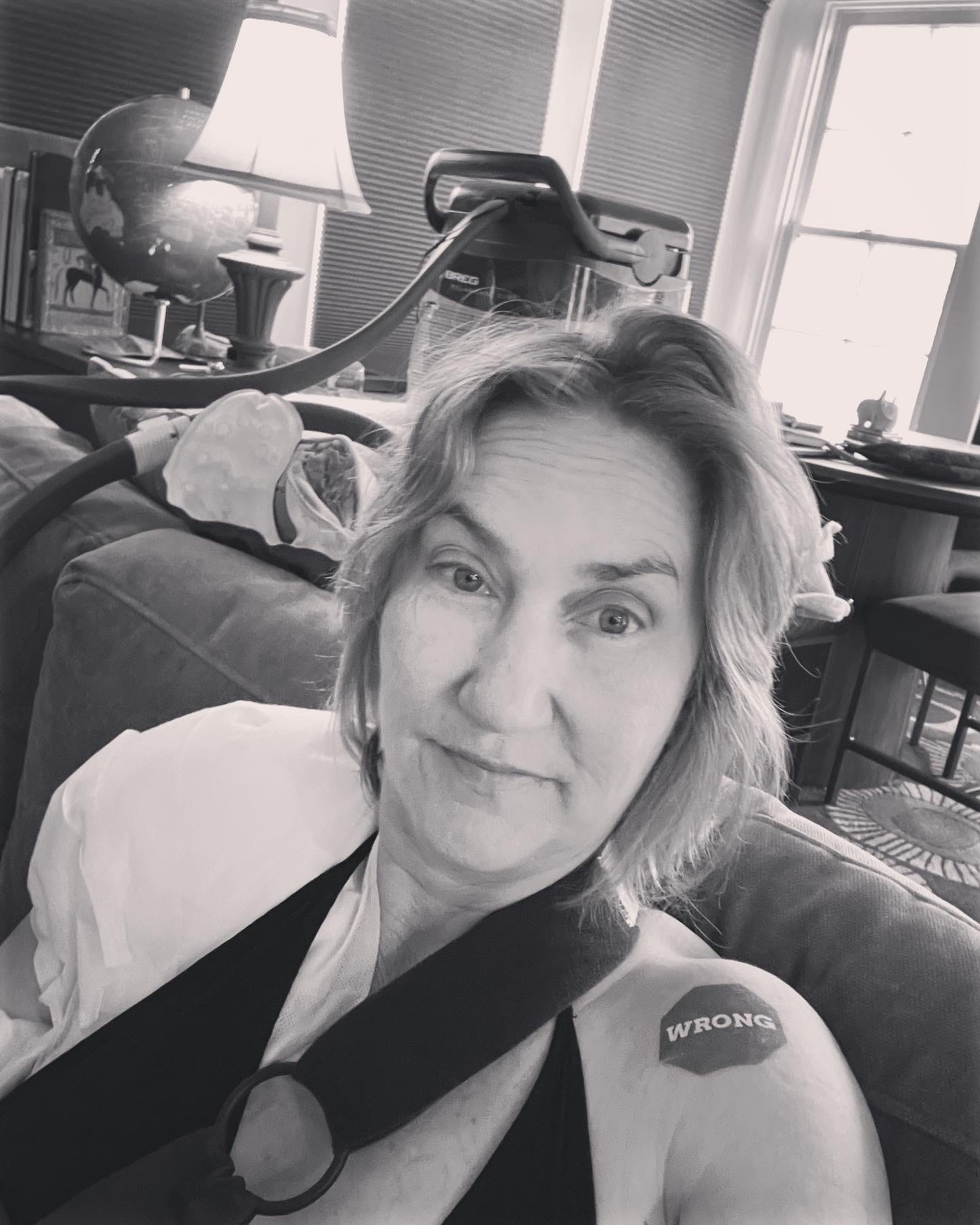NOTABLE: June, the prolonged grief idea
Latest essay (link). Inside this issue: content warning, suicide.
My latest essay for Business Insider reveals a key takeaway from my time at the infamous sex ashram, Osho. No paywall, thanks, BI!
And…
Last week we interred my father’s ashes next to my mom in Illinois, and then I spent most of this week fretting about my upcoming shoulder surgery. I’m on the other side of that procedure, relieved, but maybe not totally cogent. I knew I’d be out of it, so I began this before the tragedy in Uvalde. Sadly, the concept applies.
My friend, the author Eric Weiner, recently recommended a title from Florence Williams, Heartbreak. Knowing little else, I began reading. The book turned out to be a reported memoir, in which Williams delves into the latest medical research on the topic of grief in the context of her divorce. The details of her experiments with the latest treatments all sounded eerily familiar. What was this thing she was calling prolonged grief disorder or complicated grief, and why hadn’t I ever heard of it before?
Added to the DSM-5 in March 2022, the condition is ascribed to people who continue to grieve beyond six to twelve months following the loss of a loved one. Symptoms of prolonged grief disorder include:
Feeling as if part of you has died or is missing.
Doubts about the loss.
Intense emotional pain related to the loss.
Difficulty moving on, an inability to plan for the future or connect with friends.
Melancholy.
Believing that life has lost its meaning.
Loneliness.
The definition shocked me. Less than six to twelve months is what’s normal? Between the two heart shattering episodes I’ve endured, I’d known those symptoms for years at a stretch.
Like Williams, I found masterful spiritual guides, fantastic lovers, and great therapy (EMDR especially) to eventually break free from the grip of prolonged grief. It just took me a lot longer.
More immediate help is available. If you or someone you love is struggling with this disorder, contact the Substance Abuse and Mental Health Services Administration (SAMHSA) National Helpline at 800-662-4357 to find support and treatment near you.
If you’re experiencing suicidal thoughts, call 800-273-8255 to connect with a trained counselor. In case of immediate danger, dial 911.
I trust it’s not a spoiler to reveal that, down to a cellular level, heartbreak isn’t good for a person. One example Williams writes about is Takotsubo cardiomyopathy, also known as “broken-heart syndrome.” The event presents like a regular heart attack—chest pain, fluid in the lungs, shortness of breath, and compromised heart function—but with Takotsubo there is no cardiac blockage. Broken-heart syndrome is but one of many ways that grief can devastate the body.
Like all un-sexy research topics, this disorder isn’t widely studied. One thing we do know is that people with substance abuse disorder are more likely to experience this syndrome. And in my research group of one, I’ve found that to be true whether I’m sober or not.
That said, it’s heartening to see this diagnosis arriving as we collectively emerge from the pandemic. I’ve lost many loved ones in the past couple of years, but not gone into the same kind of downward spiral as before. I take great comfort in knowing such a diagnosis exists so that, should the symptoms rear again, it doesn’t mean I’m flawed but that there is treatment available.
Someone I loved once
gave me a box full of darkness.
It took me years to understand that
this, too, was a gift.
—Mary Oliver
Now for something lighter…
Behavioral scientist Michael Rucker, Ph.D., is working on a book called The Fun Habit (Jan 2023, Atria Books), about the science of having fun. His work resonated immediately because, when positive psychology failed him in a crisis, he realized his pursuit of happiness was making him miserable. Seeing it wasn’t possible to force happiness, he recognized that “fun” was something he could generate.
One tool in his kit is the PLAY Model, a chart that helps us evaluate our leisure time choices based which quadrant they land in. It’s just one of his strategies to help bring more joy into daily life.
Or check out his piece in Fast Company, 3 Reasons Not to Bring Your Authentic Self to Work.
On that note…
Author R.O. Kwon penned this essay for Elle a year and a half ago, and though the words “Faking Optimism” appear in the title, I found Kwon’s language more apt: “Hope is not just a feeling; like love, it is a practice. It is a verb. It is action. It can also be hard work, especially at first.”
I can’t pretend to be happy, or hopeful, or even joyful. But I can do the things that result in those states. If I can’t, then it’s time for more serious treatment.
Though I am laid up post surgery, and my beloved is down with Covid, pushing out this newsletter is an act of optimism, and I feel better for it.





